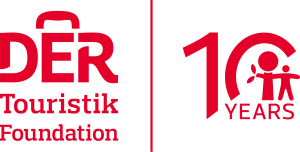Interview with Sören Hartmann
and Kathrin Sommer
DER Touristik Foundation supports new projects
REWE One spoke to Sören Hartmann, Chairman of the Board of the DER Touristik Foundation, and Kathrin Sommer, Sustainability Manager DER Touristik Group, about their passion for DER Touristik Foundation projects.
DER Touristik Foundation expands its worldwide commitment with seven new projects and promotes them together with local non-profit partners. The aim is to enable people living in holiday destinations to benefit from tourism and improve their standard of living. In addition, the education of children, young people and women is promoted and animal and nature conservation is supported.
REWE One spoke to Sören Hartmann, Chairman of the Board of DER Touristik Foundation, and Kathrin Sommer, Sustainability Manager DER Touristik Group, about their heartfelt projects.
one: What is the basic idea behind the DER Touristik Foundation?
Sören Hartmann: As a tourism company, DER Touristik’s business depends on an intact environment for people, nature and animals. That is why the DER Touristik Foundation was established in 2014. The Foundation is committed to promoting education for children, young people and women as well as nature and animal conservation in tourist regions. These are regions to which DER Touristik sends many guests, but which at the same time need our support to address challenges such as youth unemployment, restoration of mangrove forests and coral reefs, and poaching.
We use the power of tourism to protect the diversity of the earth, promote economic development in host countries and fight poverty. So far, we have implemented 92 projects in 28
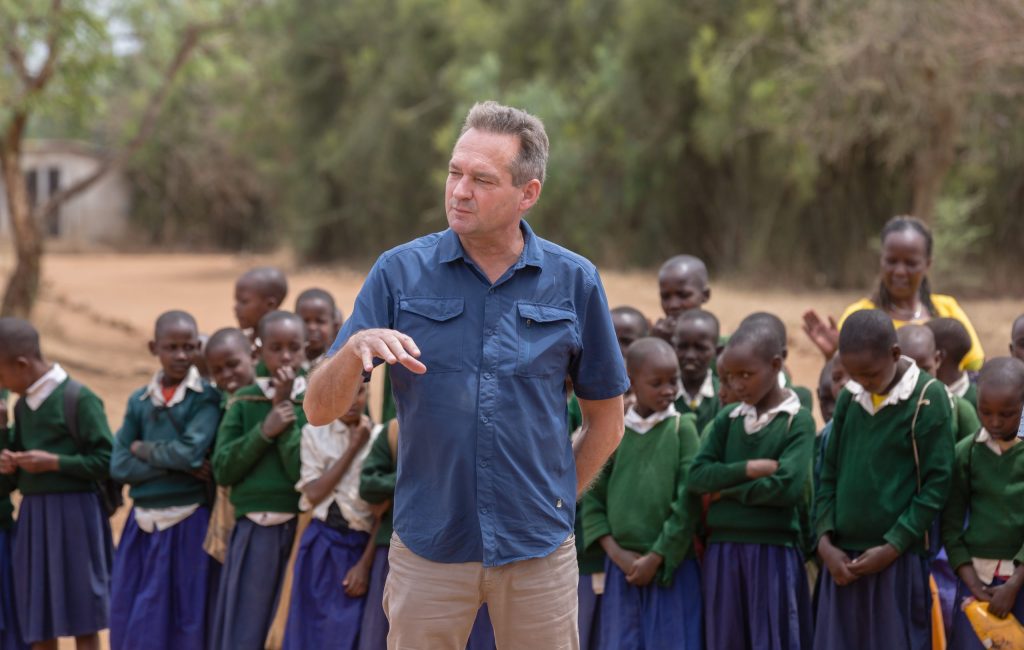
Sören Hartmann, CEO DER Touristik Foundation
countries on five continents in close cooperation with local non-profit organisations. In this way, we open up prospects for the future so that the world is worth living in for everyone. The Foundation’s work also pays off in terms of our employees’ identification with the company. That is why we would like to inspire more employees for the Foundation’s work in the future and encourage them to get involved in various activities.
one: What is the basic idea behind the DER Touristik Foundation?
Sören Hartmann: As a tourism company, DER Touristik’s business depends on an intact environment for people, nature and animals. That is why the DER Touristik Foundation was established in 2014. The Foundation is committed to promoting education for children, young people and women as well as nature and animal conservation in tourist regions. These are regions to which DER Touristik sends many guests, but which at the same time need our support to address challenges such as youth unemployment, restoration of mangrove forests and coral reefs, and poaching.
We use the power of tourism to protect the diversity of the earth, promote economic development in host countries and fight poverty. So far, we have implemented 92 projects in 28 countries on five continents in close cooperation with local non-profit organisations. In this way, we open up prospects for the future so that the world is worth living in for everyone.
The Foundation’s work also pays off in terms of our employees’ identification with the company. That is why we would like to inspire more employees for the Foundation’s work in the future and encourage them to get involved in various activities.

Sören Hartmann, CEO DER Touristik Foundation
one: What is the basic idea behind the DER Touristik Foundation?
Sören Hartmann: As a tourism company, DER Touristik’s business depends on an intact environment for people, nature and animals. That is why the DER Touristik Foundation was established in 2014. The Foundation is committed to promoting education for children, young people and women as well as nature and animal conservation in tourist regions. These are regions to which DER Touristik sends many guests, but which at the same time need our support to address challenges such as youth unemployment, restoration of mangrove forests and coral reefs, and poaching. We use the power of tourism to protect the diversity of the earth, promote economic development in host countries and fight poverty.
So far, we have implemented 92 projects in 28 countries on five continents in close cooperation with local non-profit organisations. In this way, we open up prospects for the future so that the world is worth living in for everyone.
The Foundation’s work also pays off in terms of our employees’ identification with the company. That is why we would like to inspire more employees for the Foundation’s work in the future and encourage them to get involved in various activities.

Sören Hartmann, Vorstandsvorsitzender der DER Touristik Foundation
one: Since 2014, the DER Touristik Foundation has supported almost 100 projects. What are the selection criteria? The Foundation certainly receives countless requests…
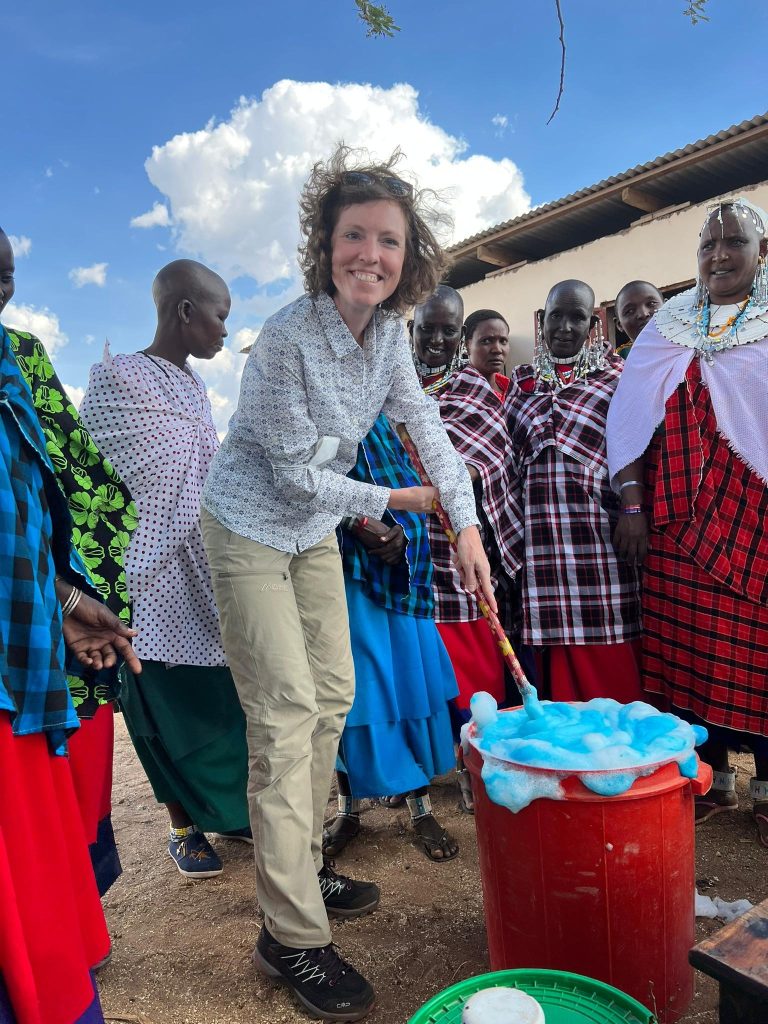
Kathrin Sommer, Managerin Nachhaltigkeit DER Touristik Group
Kathrin Sommer: That’s correct, we receive countless requests for funding. We select our projects based on an extensive catalogue of criteria that can be found on the Foundation’s homepage.
First, we review if a funding request basically fits our funding priorities – education, nature conservation, animal welfare. We also want the projects to be more and more perceptible. We are a tourism company, so it makes sense that we fund projects with a tourism connection, which in the best case either form a good basis for tourism because they train workers, e.g. for a job in a restaurant or in the hotel industry, or can be experienced in the tourist destination.
Ideally, our guests can also visit Foundation projects as part of their trip and experience them first hand.
What we always need is a trustworthy non-profit partner on site, an NGO. This is then also doublechecked by the German Foundation Center. We therefore increasingly involve our local agencies in the search for projects. Our colleagues in the destinations can better assess whether the local NGO is doing reliable work and whether it has projects that we believe are worthy of support and that sustainably improve living and environmental conditions.
In recent years, this has led to a number of projects that the Foundation is currently funding (including the Pimali training program in Thailand, mangrove protection in Sri Lanka, anti-poaching detection dogs in South Africa, sea turtle protection in Türkyie).
Kathrin Sommer: That’s correct, we receive countless requests for funding. We select our projects based on an extensive catalogue of criteria that can be found on the Foundation’s homepage.
First, we review if a funding request basically fits our funding priorities – education, nature conservation, animal welfare. We also want the projects to be more and more perceptible. We are a tourism company, so it makes sense that we fund projects with a tourism connection, which in the best case either form a good basis for tourism because they train workers, e.g. for a job in a restaurant or in the hotel industry, or can be experienced in the tourist destination.
Ideally, our guests can also visit Foundation projects as part of their trip and experience them first hand. What we always need is a trustworthy non-profit partner on site, an NGO. This is then also doublechecked by the German Foundation Center.
We therefore increasingly involve our local agencies in the search for projects. Our colleagues in the destinations can better assess whether the local NGO is doing reliable work and whether it has projects that we believe are worthy of support and that sustainably improve living and environmental conditions. In recent years, this has led to a number of projects that the Foundation is currently funding (including the Pimali training program in Thailand, mangrove protection in Sri Lanka, anti-poaching detection dogs in South Africa, sea turtle protection in Türkiye).

Kathrin Sommer, Managerin Nachhaltigkeit DER Touristik Group
one: What happens to the projects when your funding ends?
Kathrin Sommer: Ultimately, it is important to us that projects are self-sustaining after our funding ends – usually two to three years – and that they are continued independently by the local communities. Projects are only sustainable if they pursue a lasting improvement in living conditions with the goal of “helping people to help themselves”. It is important that we do not just ‘blindly’ send money to the projects. I discuss in detail with the potential project partners beforehand exactly what budget they need for what purpose. Our funding is always earmarked for a specific purpose on site. The project partners must also regularly prove this to me and the Foundation Center. We are aware that not all criteria can always be met in full. But what must be fulfilled 100 percent is that there is an NGO behind the funding project that we can rely on
one: Do you think the Foundation’s work can make a lasting difference to local living conditions – even after the project has ended?
Sören Hartmann: Yes, I do, and I would like to take the Foundation’s work in Emboreet in the north of the country as a successful example. At the end of 2021, Kathrin and I traveled there to get an impression of the Foundation’s project successes. The Foundation has been active here since 2016 with various projects, some of which have now been completed and are being continued by the local communities. Educational programs are a crucial lever and must involve all population groups: Young and old, women and men. By building eight elementary school, we have given more than 3,700 children a school education and thus a start to a successful life.
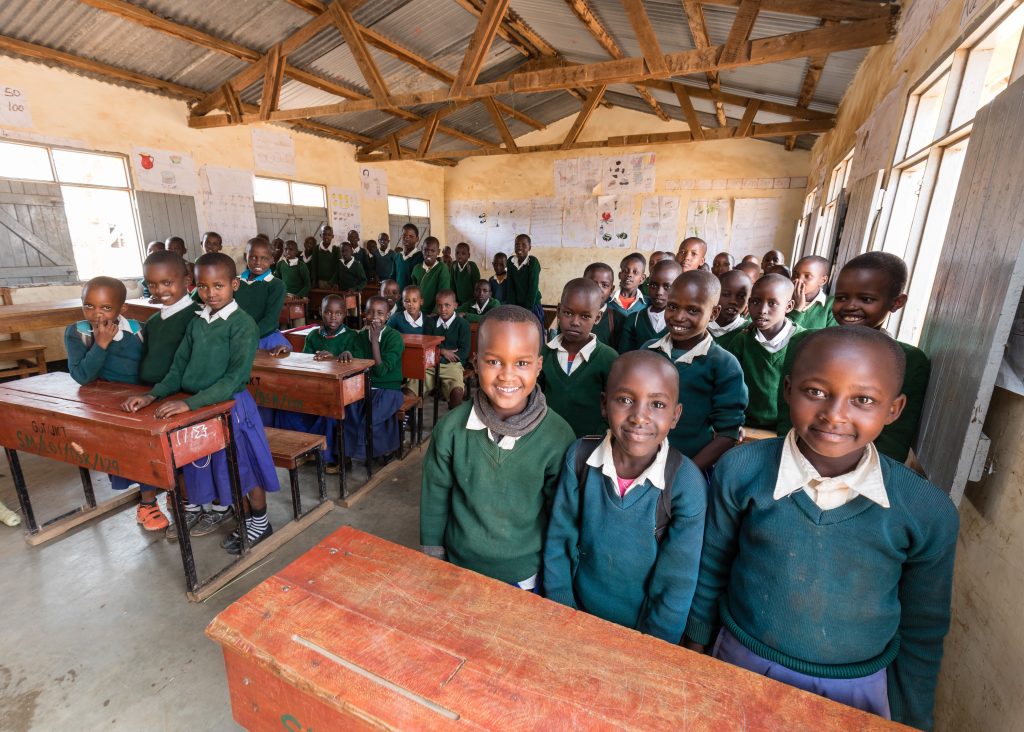
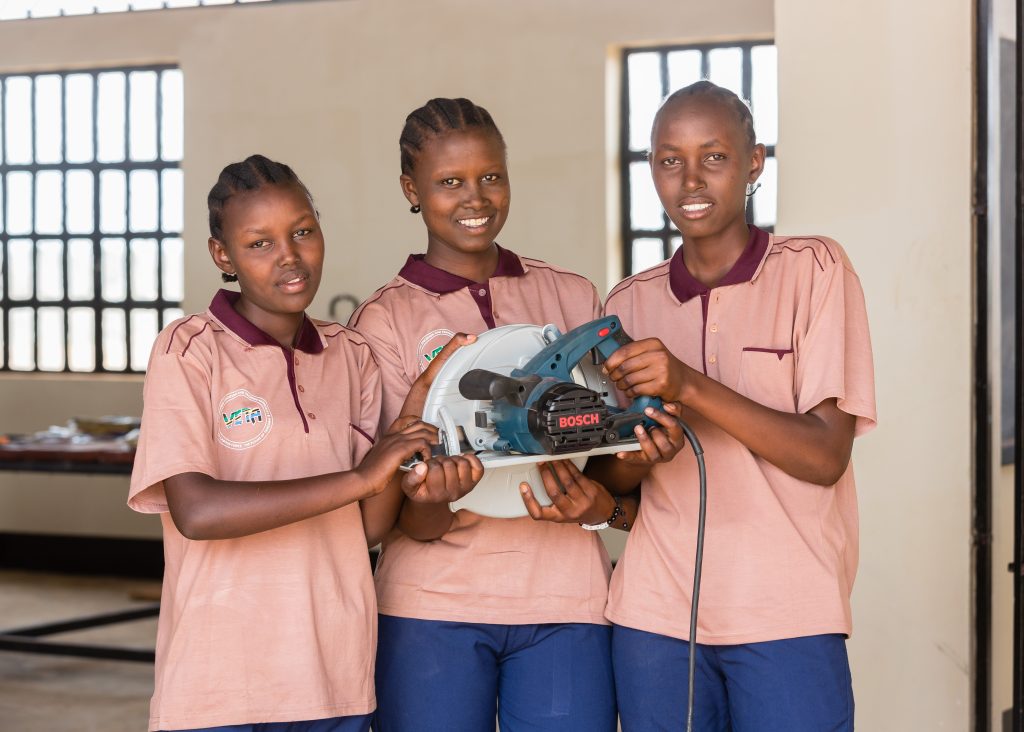
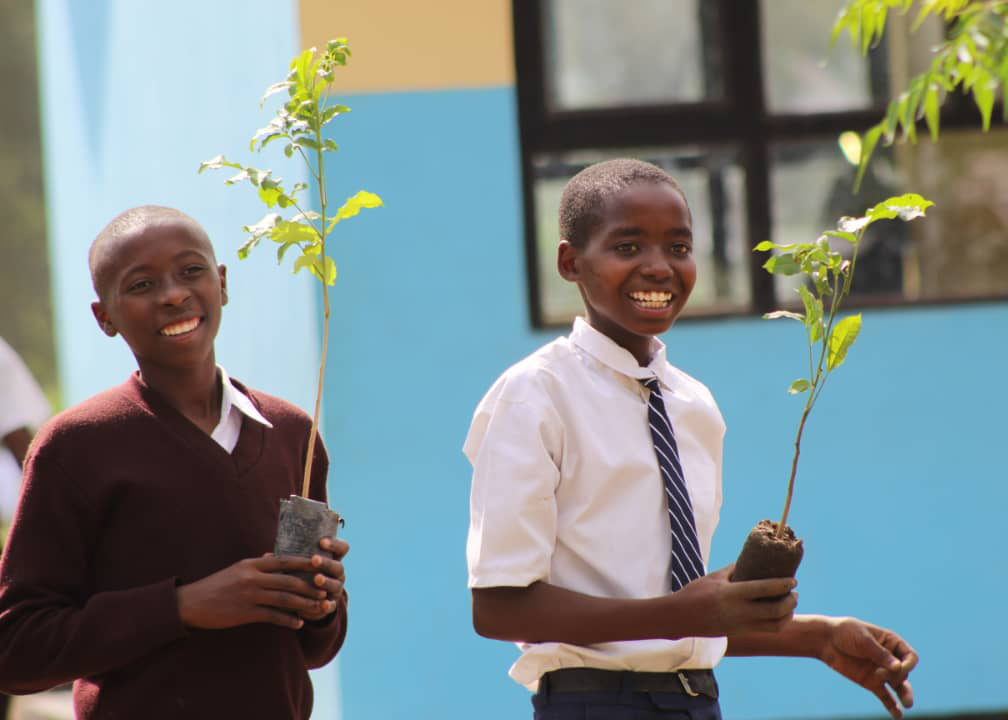
With the craftsmen’s center for bricklayers, carpenters and locksmiths that we have built, 60 young men and women each year are given a sound dual education. As trained specialists, they find work locally and can support their families.
In order for children and young people to receive an education, the mothers in particular must be convinced of how important it is to support them. In Maasai culture, however, women are often married off early without education and have many children. The Foundation has therefore set up a women’s education center where they learn helpful things for daily life, such as hygiene, household management or active family planning. They also learn how to set up small businesses from the production of soap and maize flour. From this income, they can in turn provide education for their children.
Ultimately, young people in particular are valuable multipliers. The project ‘Living in Harmony with Nature’ teaches children and young people how to protect wildlife and nature. They also learn that tourism is an important source of income that their country needs. They pass this knowledge on to their parents and grandparents, who are often illiterate.
one: What plans do you have for the future?
Kathrin Sommer und Sören Hartmann: Next year, the Foundation will be ten years old. For the Foundation’s 10th anniversary, we are planning to set up a new Foundation project with a local partner organization so that we can play an even greater role in shaping the project content ourselves as an exclusive sponsor.
In the future, we are also striving to reflect more strongly in our project portfolio the thematic priorities we have in the area of sustainability. We are committed to the climate, for example we are working on a climate strategy with the REWE Group or the climate footprint for travel. It would therefore be great if we could also have Foundation projects in the future, which would then have a positive influence on this issue, which is important for all of us. So there are plenty of ideas for the future.
one: Thank you for the interview.
Source: Rewe One
